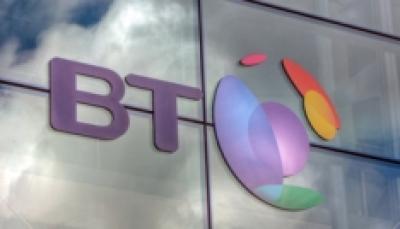BT Music Download Service To Combat File-Sharing

BT has confirmed plans to launch a not-for-profit music download service for its customers
BT has confirmed plans to launch a not-for-profit music download service, in an attempt to wean its customers off illegal file-sharing networks.
According to a leaked ‘invitation to tender’ document seen by The Guardian newspaper, BT is currently in talks with the major music labels, and plans to roll out the service to its 5.5 million broadband users “in the near future”.
The service will be based on a subscription model, though details of pricing are scant. BT will forgo a profit for the first six to nine months, meaning the service will be free to access for its customers, but the company could introduce charging after that time.
“We are very keen to launch a music service in the near future, but it will have to be with a model that customers will want and can work financially for BT,” said the company in a statement to eWEEK Europe. “We are in the early development stage so we are not currently in a position to comment further.”
DEA opposition
The news comes as BT and TalkTalk launch their legal challenge to the Digital Economy Act, after the High Court granted a judicial review of the law earlier this month. The two ISPs are jointly arguing that the regulations are “seriously flawed” and “incompatible” with European law.
 The DEA requires ISPs to impose an escalating series of sanctions on persistent file-sharers, starting with sending letters to illegal downloaders and culminating in slowing down the connection speed of offenders or temporarily suspending their connections.
The DEA requires ISPs to impose an escalating series of sanctions on persistent file-sharers, starting with sending letters to illegal downloaders and culminating in slowing down the connection speed of offenders or temporarily suspending their connections.
Antony White, the QC acting for the ISPs, said these measures would “impact the privacy and free expression rights of customers”. If the challenge is successful, it will overturn what is seen by many as a hastily and imperfectly drafted law which was rushed through parliament at the end of the Labour government’s term of office.
However, the review could once again put BT at loggerheads with rights holders such as Universal and EMI – the very companies that BT would hope to partner with on its music download service. Copyright owners, and in particular record labels and film studios, are the main force behind the Digital Economy Act, and have called for BT to block illegal file-sharing sites in the past.
There has been some suggestion that BT could attempt a tie-in with music streaming site Spotify, which already has a million paying European subscribers. Spotify has been in talks with Virgin Media, and is rumoured to be considering a partnership with a major ISP.
Government wades in
Last month, the UK government announced the formation of a working group to address how to identify and block illegal file-sharing sites as required by the Digital Economy Act. The group includes copyright holders, internet service providers (ISPs), search engine representatives and government ministers.
One plan under consideration is that the rights holders would take the burden and indemnify ISPs from prosecution. This could be done by presenting the ISPs with incontrovertible proof that a site is operating illegally.
“I have no problem with the principle of blocking access to websites used exclusively for facilitating illegal downloading of content. But it is not clear whether the site blocking provisions in the Act could work in practice,” said Culture Secretary Jeremy Hunt in February. “Before we consider introducing site-blocking we need to know whether these measures are possible.”